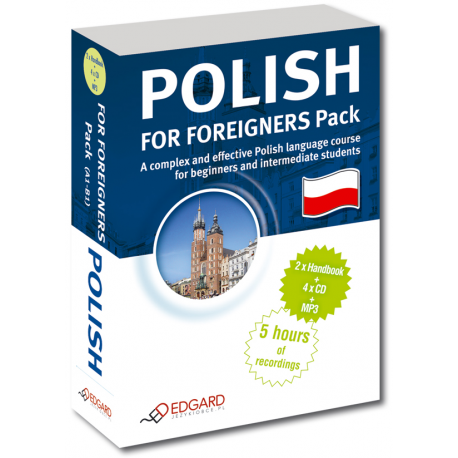




Noun - Rzeczownik
Polish does not have elements corresponding to English indefinite and definite articles: a, an, the. One interprets a noun as definite or indefinite on the basis of context. Hence dziewczyna (girl) may be interpreted as “a girl” or “the girl.”
Polish nouns have three genders: masculine, feminine and neuter. Grammatical gender is not necessarily connected with natural gender (sex). It is mainly of importance for purposes of grammatical agreement. For example, “feminine” nouns require that a modifying adjective have “feminine” endings, as in dobra szkoła (a good school); compare to masculine dobry nauczyciel (good teacher) or neuter dobre jedzenie (good food). While names for males will be masculine in gender, and names for females will be feminine, and gender of animals depends on their sex as kura (hen), kogut (rooster), other objects are divided up according to gender in an arbitrary way. For example, stół (table) is masculine in gender, while krzesło (chair) is neuter.
Masculine gender:
brat (brother), telefon (telephone), dom (house, home), chleb (bread), sok (juice)
Feminine gender:
córka (daughter), woda (water), kawa (coffee), firma (company), ulica (street)
Neuter gender:
dziecko (child), wino (wine), śniadanie (breakfast), mieszkanie (flat), okno (window)
Plural
Nouns masculine and feminine in gender often take special endings in the plural. Usually the ending is -i/y:
dom – domy (house – houses),
córka – córki (daughter – daughters),
komputer – komputery (computer – computers).
But, there are quite a few exceptions to the rule e.g.
Polak – Polacy (Pole – Poles)
Amerykanin – Amerykanie (American – Americans),
mąż – mężowie (husband – husbands) etc.
Nouns neuter in gender form the plural in -a, for example:
piwo – piwa (beer – beers),
morze – morza (sea – seas),
mydło – mydła (soap – soaps)
This article was based on: Polish for foreigners
Polish nouns have three genders: masculine, feminine and neuter. Grammatical gender is not necessarily connected with natural gender (sex). It is mainly of importance for purposes of grammatical agreement. For example, “feminine” nouns require that a modifying adjective have “feminine” endings, as in dobra szkoła (a good school); compare to masculine dobry nauczyciel (good teacher) or neuter dobre jedzenie (good food). While names for males will be masculine in gender, and names for females will be feminine, and gender of animals depends on their sex as kura (hen), kogut (rooster), other objects are divided up according to gender in an arbitrary way. For example, stół (table) is masculine in gender, while krzesło (chair) is neuter.
Masculine gender:
brat (brother), telefon (telephone), dom (house, home), chleb (bread), sok (juice)
Feminine gender:
córka (daughter), woda (water), kawa (coffee), firma (company), ulica (street)
Neuter gender:
dziecko (child), wino (wine), śniadanie (breakfast), mieszkanie (flat), okno (window)
Plural
Nouns masculine and feminine in gender often take special endings in the plural. Usually the ending is -i/y:
dom – domy (house – houses),
córka – córki (daughter – daughters),
komputer – komputery (computer – computers).
But, there are quite a few exceptions to the rule e.g.
Polak – Polacy (Pole – Poles)
Amerykanin – Amerykanie (American – Americans),
mąż – mężowie (husband – husbands) etc.
Nouns neuter in gender form the plural in -a, for example:
piwo – piwa (beer – beers),
morze – morza (sea – seas),
mydło – mydła (soap – soaps)
This article was based on: Polish for foreigners
Tagi: polish, polish for foreigners, polish language, polski, język polski, nauka języka, nauka języka polskiego
Zaproponuj zmianę

|
Polski dla cudzoziemców Pakiet Polish for Foreigners Pack (2 x Książka + 4 x Audio CD + MP3)
Kompleksowy i skuteczny kurs języka polskiego A complex and effective Polish language course |



 Polski
Polski
 Angielski
Angielski Arabski
Arabski Chiński
Chiński Chorwacki
Chorwacki Czeski
Czeski Duński
Duński Fiński
Fiński Francuski
Francuski Grecki
Grecki Hiszpański
Hiszpański Holenderski
Holenderski Japoński
Japoński Niemiecki
Niemiecki Norweski
Norweski Portugalski
Portugalski Rosyjski
Rosyjski Szwedzki
Szwedzki Turecki
Turecki Ukraiński
Ukraiński Węgierski
Węgierski Włoski
Włoski
















